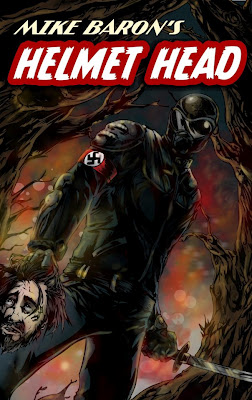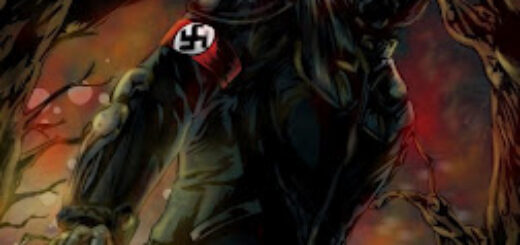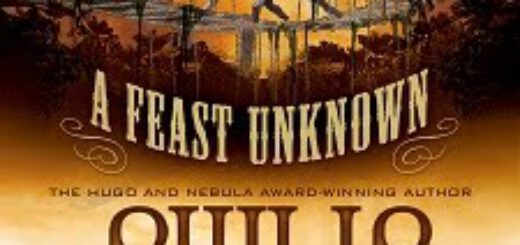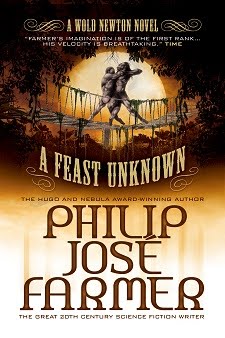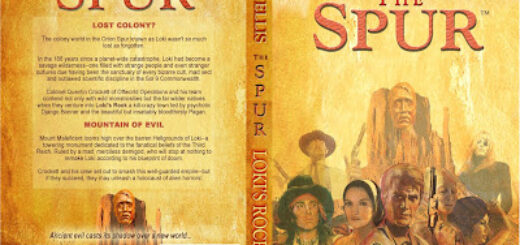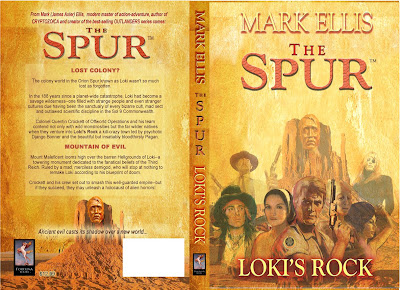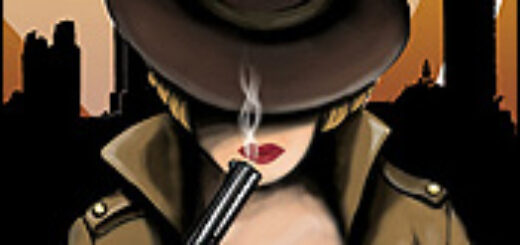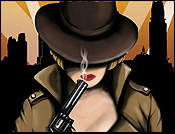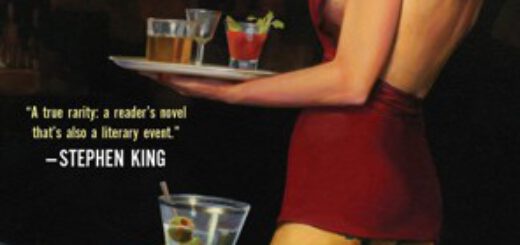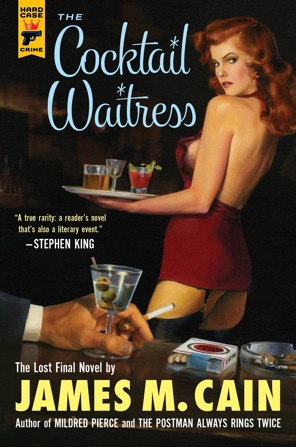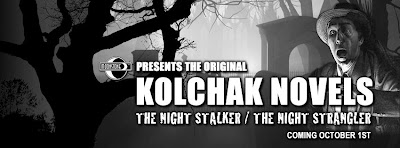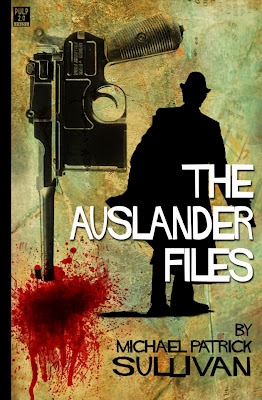REPOSTED FROM CNN
(CNN) — Would you recognize a roscoe if you see one? Ever run into a gumshoe? Do you take your heroes hard-boiled and your dames dangerous?
If the answer is yes to any of these questions, then dear reader, you will welcome the arrival of a lost novel from a prince of pulp fiction. The book is “The Cocktail Waitress.”
The author is James M. Cain, best known for two noir masterpieces, “The Postman Always Rings Twice” and “Double Indemnity.” Both books sold millions of copies and inspired classic movies. When Cain died in 1977, his fans thought it was the end of the story.
Now, 35 years later, Cain’s last novel is finally reaching readers. So how did this book go from buried treasure to publication?
Credit crime fiction connoisseur Charles Ardai with discovering “The Cocktail Waitress.” Ardai is a longtime Cain fan, an author, editor and the publisher behind the Hard Case Crime series. Ardai helped revive the pulp fiction genre in recent years with a series of popular paperbacks packed with sex, sin and recognized for their tawdry covers.
Years ago, Ardai heard rumors of a lost Cain novel, written at the end of his life but never published. With nearly a decade of detective work, Ardai uncovered “The Cocktail Waitress,” polished the manuscript and this week brings it to bookstores. To fans of old school crime fiction, this book is akin to finding an unheard symphony or a missing oil masterpiece. It has all the hallmarks of classic Cain: lust, greed, betrayal and deception.
It’s the story of beautiful young widow, Joan Medford. After her husband dies under suspicious circumstances, she’s forced to work as a waitress in a cocktail lounge where she meets a handsome young hustler and an aging millionaire. To reveal more would spoil the fun for readers, but suffice to say Joan is not your typical femme fatale. CNN recently spoke to Ardai about the hunt for Cain’s long-lost novel.
The following transcript has been edited for style and brevity:
CNN: Tell me about the hunt for “The Cocktail Waitress.” How did you discover the book?
Ardai: A decade ago, before we ever put out our first book, I was talking with “Road to Perdition” author Max Allan Collins about what sorts of books we might want Hard Case Crime to publish, and he mentioned that he’d heard that there was a last unpublished James M. Cain novel called “The Cocktail Waitress,” written at the very end of Cain’s life, but Max had never seen the book and no one he knew had. Maybe I could find it?
Well, I’d been a huge Cain fan since my freshman year in college, when I’d found a battered copy of “Double Indemnity” on a used book table, and I couldn’t resist this challenge. So I began searching.
The search took nine years. No one I asked seemed to have seen a copy of the manuscript. The Cain estate didn’t have one. None of the collectors or historians I reached out to did. For a while, the more inquiries I put out the less progress I seemed to be making. But I finally thought to ask Joel Gotler, the Hollywood agent who’d inherited the files of H. N. Swanson, Cain’s agent back in the day, and sure enough, there was a copy of the manuscript lurking in Swanson’s files.
But even that wasn’t the end of the search, since it turned out there were several incomplete drafts hiding in the rare manuscript collection of the Library of Congress. …
CNN: This sounds like quite a literary find?
Ardai: Very much so. Cain is considered one of the “big three” in hard-boiled crime fiction, the other two being Dashiell Hammett (“The Maltese Falcon”) and Raymond Chandler (“The Big Sleep”). Chandler and Hammett defined the hard-boiled detective story, but when you take the detective away and just focus on the criminals — the story of a femme fatale out to kill her husband for the insurance money and the lust-blinded sap she seduces into doing the deed — then you’re on Cain’s turf.
He completely owned that type of sordid, desperate crime story. And finding an unpublished manuscript by Cain — it’s like finding a lost Steinbeck novel, or a lost Hemingway, or if you’re a music lover a lost score by George Gershwin. A last chance to hear a great voice from the past, taking you on one last wild ride.
CNN: Once you found the novel, your work was not over. There was quite a bit of revision and editing before the novel’s release.
Ardai: Cain worked and reworked this novel several times at the end of his life, which was presumably why it never got published — he was still working on it when he died. But just to be clear, this doesn’t mean the book was incomplete; on the contrary, he completed at least two full drafts, and then also had various partial drafts that petered out after anywhere from 1 to 100 pages. Which left me with an editing challenge: How to put together a single, complete final draft out of all the material Cain left behind?
In some cases, it was clear that Cain had made a choice he wanted to stick with — for instance, after writing his first draft in the third person, all subsequent drafts were penned in the first person. So first person clearly was his preference.
But in other places, it was less clear what he’d have preferred, so we had to just go with the version we felt was stronger. But in the end, this is what an editor always does — work with an author’s draft to make it the strongest book you possibly can.
It’s easier when the author is alive and can answer questions, but this is hardly the first posthumous book we’ve published. We’ve had similar situations with Donald E. Westlake and Roger Zelazny and David Dodge, among others. So I could draw on that experience when working on this book.
CNN: How does the novel hold up for today’s audience?
Ardai: Oh, it’s great. Part of the reason is that it’s set smack in the heart of the “Mad Men” era, which is certainly not a turnoff for today’s audience. But a bigger reason is that Cain’s themes are timeless.
The dialogue and clothing and hairstyles might remind you you’re reading about the past, but men still kill each other over the love of a beautiful woman today; women still hunger for men who aren’t their husbands; people still find themselves in dire situations, desperate for money and forced to take a degrading job to provide for their children.
The danger in the book, the threats, the pain, the horror of losing a loved one — these are things that never go away.
CNN: “The Cocktail Waitress” is written from the point of view of Joan Medford. How would you describe her?
Ardai: The thing that makes Joan unusual is that she’s the narrator of the book. Usually in Cain’s novels, it’s a man who’s narrating and you see the femme fatale through his eyes — beautiful, sultry, ice cold one minute and burning hot the next, more than a little mysterious. But here Cain makes the brave choice to put us inside the head of the femme fatale herself, which makes her a much richer and more complex character.
No femme fatale thinks she is one or will admit it if she does. From her point of view, she’s just a woman who’s acting reasonably while the world goes mad around her. Do the men in her life drop like flies? Perhaps — but it’s not her fault! This chance to see a classic femme fatale from the inside out is part of what makes “The Cocktail Waitress” so fascinating, and so daring.
CNN: As an award-winning writer, editor and publisher of crime fiction, Cain must have had a great influence on you.
Ardai: No question. The pair of novels I wrote as Richard Aleas — “Little Girl Lost” and “Songs of Innocence” — were directly inspired by Cain. They’re the story of a young man blinded by his love for two beautiful women, who finds himself doing terrible things as a result.
Before I wrote them, I read every book Cain had ever published. He was my muse. As you can imagine, it was an honor and a privilege to get to work on Cain’s final novel, to have a hand in bringing this last lost dollop of darkness to light.
